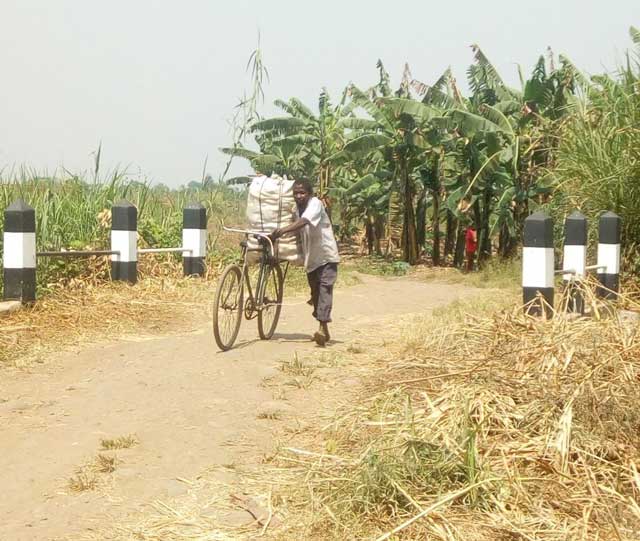
Kasese, Uganda | THE INDEPENDENT | The ban on public transport has hit hard coffee factories and farmers in Kasese District. Farmers in hard to reach areas are finding a huge challenge to transport their coffee beans to factories.
Eric Katengo, a coffee farmer in Kalingwe in Kisinga Sub County, says both the curfew and ban on carrying passengers has affected the quality and volume of coffee they supply. He says buyers who use private means have seemingly halted the business.
Katengo says even farmers have been unable to reach out to factories and agro dealers on time, which has affected the quality of their products.
According to Katengo, some farmers have now embraced the use of donkeys to transport their products from their garden to factories and stores.
Sadress Masika says the absence of an effective public transport system has gradually affected the quality of their coffee since they take long to reach factories.
Masika says this has also the price of coffee.
For example a kilogram of Kiboko now costs less than Shillings 2000 compared to the national average of between Shillings 2000 and 2200.
Abdullah Sisya, a coffee farmer from Kitholu Sub County says the lock down has hampered them from receiving some key extension services. “Our rural extension workers can hardly reach us due to transport challenges,” Sisya says
Edward Maate, an expert in coffee farming and rearing donkeys, says most coffee farmers have failed to reap big since the quality of coffee is compromised before it reaches the factory due to delayed transportation and poor handling practices.
John Rowland, the CEO Agri Evolve coffee factory in Kisinga Sub county, says since the lock down farmers have been struggling to reach the factories. He says coffee volumes have reduced since the lockdown.
Julius Rukara, the Principal Production Officer Kasese district acknowledges the fact that the lock down has greatly affected the production chain in the district.
Rukara welcomes the use of the donkey but says the farmers must abide with standard practices to ensure the cherries are not contaminated while being carried by donkeys.
“The use of donkeys is okay as long as the animal is not sick or dirty,” Rukara notes
******
URN
 The Independent Uganda: You get the Truth we Pay the Price
The Independent Uganda: You get the Truth we Pay the Price





